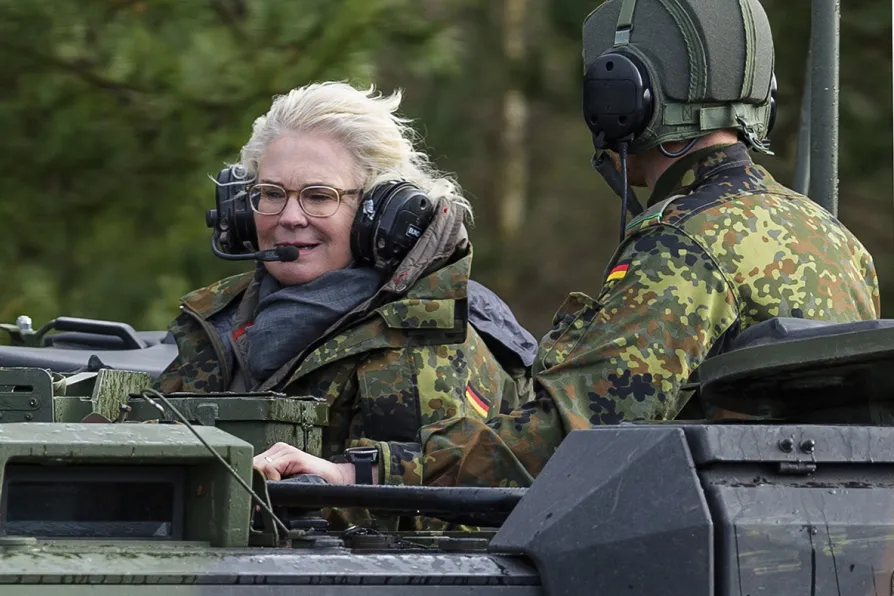CHRISTOPHE DOMEC speaks to CHRIS SMALLS, who helped set up the Amazon Labor Union, on how weak leadership debilitates union activism and dilutes their purpose

 German Defence Minister Christine Lambrecht (left) rides in a tank during her visit to the Tank Training Brigade 9 in Munster, Germany, Monday, February 7, 2022
German Defence Minister Christine Lambrecht (left) rides in a tank during her visit to the Tank Training Brigade 9 in Munster, Germany, Monday, February 7, 2022
IN WHAT amounts to a shocking indictment of the merchants of war — otherwise known as governments — in assorted western European capitals, operating as ever under the increasingly frayed umbrella of US hegemony and suzerainty over a world that is changing in front of our eyes, a contingent of German troops — yes, German — is to be deployed to Lithuania in a daily expanding Nato operation to “contain” Russia.
Everything, clearly, has been forgotten and no lessons have been learned by and on the part of men and women for whom strong leadership is coterminous with the willingness to march their countries lockstep into war on the flimsiest of reasons.
The last time German troops were deployed to Lithuania they were directed there by one Adolf Hitler, who currently — surprise, surprise — is being resurrected in the Western media in the image of Vladimir Putin. This is the same Putin who himself lost a two-year-old brother during the German siege of Leningrad between 1941 and 1944.

In the first half of a two-part article, PETER MERTENS looks at how Nato’s €800 billion ‘Readiness 2030’ plan serves Washington’s pivot to the Pacific, forcing Europeans to dismantle social security and slash pensions to fund it

As Moscow celebrates the 80th anniversary of the Nazi defeat without Western allies in attendance, the EU even sanctions nations choosing to attend, revealing how completely the USSR's sacrifice of 27 million lives has been erased, argues KATE CLARK

The pivotal role of the Red Army and sacrifices of the Russian people in the defeat of Nazi Germany must never be forgotten, writes DR DYLAN MURPHY










